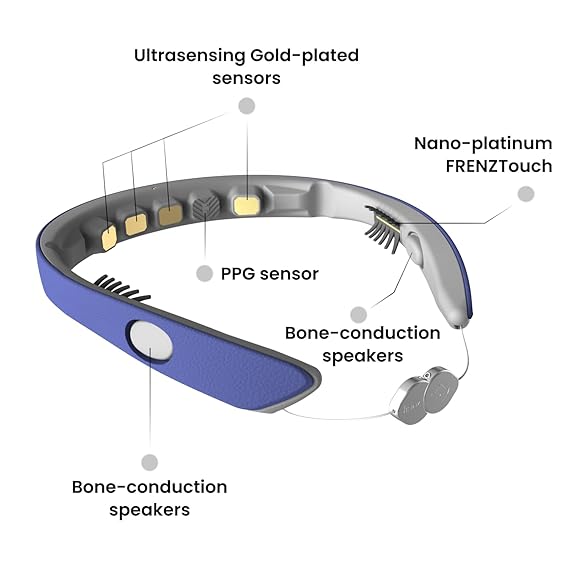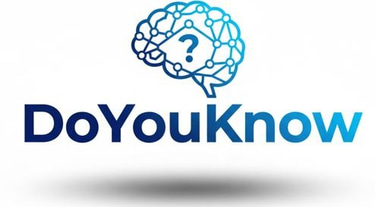Do You Know Why Employers Are Using AI Brain Headbands to Track Focus at Work
This eye-opening article explores why companies worldwide are adopting AI-enabled brain headbands i.e., AI Brain Headbands to monitor employee concentration and productivity. Discover how these futuristic devices work, why employers love them, and why employees are concerned.
TECH & SCIENCE
Do You Know Team
8/18/20255 min read


Imagine a workplace where your thoughts are being silently monitored while you work — not your emails or keystrokes, but your mental focus itself. Sounds like science fiction, right? But this is becoming a reality as companies worldwide begin adopting AI-powered brain headbands to track employees' attention levels in real-time. These devices promise higher productivity but also raise serious questions about privacy and ethics. Let’s explore why employers are suddenly obsessed with these futuristic gadgets.
1. What Are AI Brain Headbands?
AI brain headbands are lightweight wearable devices that sit across the forehead and use sensors to detect brainwave activity associated with focus and distraction. They use EEG (electroencephalography) combined with AI algorithms to convert neural signals into data that can be tracked and scored in real time. Companies use this data to understand when employees are most focused, distracted, or mentally fatigued throughout the day.
2. The Main Reason Employers Are Adopting Them: Higher Productivity
The biggest reason companies invest in these headbands is the promise of measurable productivity gains. Employers can now track work output not by hours spent but by actual attention given to tasks. Managers can view dashboards showing which hours of the day bring peak focus, allowing them to schedule meetings or deep work at optimal times. This helps organizations increase efficiency without necessarily pushing employees to work longer hours.
3. Real-Time Feedback Helps Employees Stay on Task
Some companies provide employees with access to their own focus data. When workers receive real-time alerts whenever their focus drops, they are more likely to correct themselves and re-engage. It acts as a self-improvement tool that promotes mindfulness and reduces time spent on distractions like social media or unnecessary browsing.
4. Work-from-Home Monitoring Has Pushed This Technology
During the pandemic, remote work made it harder for managers to judge how focused employees truly were. AI brain headbands became an answer to this hidden problem of “invisible distraction.” These devices help employers feel more in control of remote teams by ensuring that even at home, workers remain attentive and productive.
5. AI Brain Headbands Claim to Reduce Burnout
Some proponents argue that by tracking mental fatigue, companies can identify when employees are overworked and need breaks. This could potentially help prevent burnout by scheduling rest periods based on actual brain data rather than guessing. However, whether companies use this data for the worker’s well-being or for squeezing out more productivity remains a big question.
6. The Ethical Concerns: Is This the End of Privacy at Work?
Critics argue that AI brain headbands cross an ethical line. Monitoring someone’s brainwaves is far more invasive than tracking keystrokes or email usage. It raises serious privacy concerns about how this neural data might be stored, who has access to it, and whether it could be misused for disciplinary actions. Many fear this technology could become a new form of surveillance capitalism.
7. Employee Resistance and Anxiety
Many employees are uncomfortable with wearing a device that monitors their mental state. It creates anxiety, especially when people know their “focus score” might influence performance reviews or promotions. Some fear constantly being judged—even for having a normal distracted moment or thinking creatively. The fear of constant evaluation can actually reduce morale and creativity over time.
8. Are These Devices Even 100% Accurate?
Brain sensing technology is still developing. A headband might detect brain activity but may not understand why someone is distracted. It might confuse deep thinking (which looks similar to distraction on EEG) with actual lack of focus. This can lead to false data and unfair conclusions about an employee’s performance.
9. Corporates See It as a Competitive Advantage
Tech giants and startups eager to increase performance view these tools as a competitive edge. If their teams are more focused, they deliver faster, create innovative solutions, and reduce mistakes. This makes the company more profitable with fewer employees. These benefits attract big investors who believe the future workforce will be optimized with neurotechnology.
10. Governments and Regulations Are Still Not Ready
There are currently very few laws governing neuro-monitoring at workplaces. Most labor laws focus on physical safety or data privacy for personal data but not brain data. This legal grey area allows companies to experiment with these tools without clear rules. Experts warn that regulations need to catch up before this becomes widespread.
11. Could This Be the Future of All Workplaces?
While adoption is still in early stages, analysts predict that within the next decade, neurotechnology could become a normal part of corporate HR systems—just like biometric logins or CCTV cameras did. Some companies might make it optional but reward employees who participate, creating indirect pressure for everyone to comply. This could lead to a new era of “cognitive surveillance.”
12. Potential Good Uses in Training and Education
Not all uses are negative. Brain headbands can help train new employees faster by showing when information is actually being absorbed. In education, they are being used to detect when students lose interest so teachers can adjust their methods. If used ethically with consent, this technology could improve learning and skill-building significantly.
13. Employees Need to Know Their Rights
As this trend continues, workers should educate themselves on labor laws and workplace consent. They should insist on transparency: What data is being collected? How long will it be stored? Who will access it? Knowing these rights will help them protect themselves from misuse of this sensitive data.
14. Experts Warn About Mental Health Impact
Wearing a device that constantly measures your brain activity may cause chronic stress. Employees could develop performance anxiety, feeling pressured to stay focused at all times, which is impossible for the human brain. This continued stress could negatively affect mental health, leading to burnout—the very thing these devices claim to prevent.
15. Will Employees Accept or Reject This Technology?
Whether this technology becomes mainstream depends largely on employee acceptance. If workers demand mental privacy and push back through unions or social pressure, companies may be forced to scale back. However, if companies incentivize it in ways employees find beneficial—like productivity bonuses or mental wellness programs—adoption could increase gradually.
FAQs
Q1. Are AI brain headbands safe to wear all day?
Yes, most are non-invasive and safe, but long-term mental fatigue and stress are still concerns.
Q2. Do employees have to consent to wearing them?
In most countries, yes. But sometimes consent is pressured or linked to incentives.
Q3. Do they read your thoughts?
No, they don’t read content of your thoughts. They only detect patterns of focus and distraction.
Q4. Could this help improve productivity permanently?
Possibly, if used ethically to help workers structure their day and manage energy levels better.
Q5. Will all companies start using them?
Not all, but large tech-driven firms may adopt them first. Over time, it could become widespread.
Conclusion
AI brain headbands represent a powerful new phase in workplace technology. They promise improved focus, higher productivity, and better understanding of how we work. But they also risk invading the deepest form of privacy—our own thoughts. Whether this trend becomes a force for good or a tool for surveillance depends on how responsibly companies use the data and how strongly employees assert their rights. One thing is clear: the future of work is no longer just digital; it’s now inside the human mind.
#AIHeadbands, #FutureOfWork, #WorkplaceSurveillance, #EmployeeProductivity, #NeurotechInWorkplace, #BrainTechnology, #CorporateControl, #TechEthics, #FocusTracking


Knowledge
Empowering minds with reliable educational content daily.
Newsletter Signup
© 2025 DoYouKnow. All rights reserved.
Stay Ahead of the Trends – Join Our Newsletter
